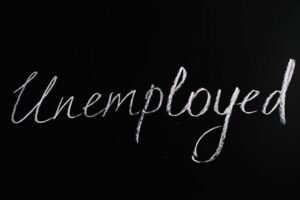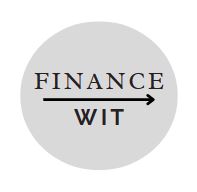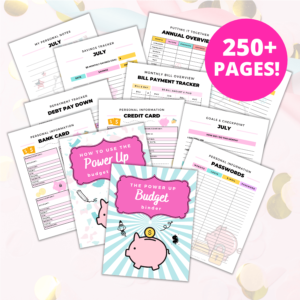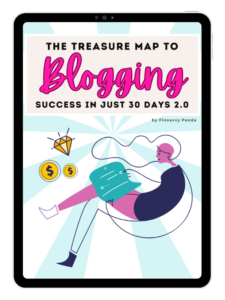
When I found myself unemployed, one of the most daunting challenges I faced was figuring out how to manage and pay off my debt without a steady income.
If you are reading this, chances are you’re in a similar situation, feeling the weight of financial obligations with no clear way to tackle them.
Losing a job is one of the most challenging experiences we can face, especially when we have debts looming over us.
But I’m here to tell you that it’s possible to manage and even reduce your debt while unemployed.
Today, I’m going to share some practical strategies on how to pay off debt while unemployed.
Let’s dive in and start tackling this challenge head-on!
7 WAYS TO PAY OFF DEBT WHILE UNEMPLOYED
1. ASSESS YOUR FINANCIAL SITUATION
The first step is to get a clear picture of your financial situation. It is crucial to know exactly what you’re dealing with before you can decide to tackle it.
Evaluate Your Debt
I remember the day I sat down with a cup of coffee and listed every single debt I had: credit cards, personal loans, student loans, lines of credit and car payments. It was eye-opening, to say the least.
Make sure to note down the type of debt, the amount owed, the interest rates and minimum monthly payments for each.
This step might feel intimidating, but it is essential to understand exactly what you’re dealing with.
Prioritizing high-interest debts is crucial because these can snowball quickly and become even more unmanageable.
Analyze Your Expenses
Next, take a close look at your expenses.
Track every penny you spend for at least a month. Yes, every single one! You’d be surprised how those little purchases add up.
Divide your expenses into categories like housing, food, utilities, transportation, entertainment, and even those small daily expenses like coffee.
Identifying non-essential expenses is key. You might be surprised to see how much you’re spending on things you don’t really need.
This is where you can start cutting back and free up some money to put towards your debt.
Calculate Available Resources
Now, let’s figure out what resources you have at your disposal. Do you have any savings? Are you eligible for unemployment benefits? What about other sources of income, like side gigs or freelance work?
Calculate your total available resources to get a sense of what you can realistically work with each month.
Knowing what you have to work with will help you create a realistic budget and plan for paying off your debt.
2. DEVELOP A BUDGET
Creating a budget is a crucial step in managing your finances, especially when you are unemployed.
A well-planned budget can help you stretch your resources further and ensure that you’re covering all your essential expenses.
Create a Bare-Bones Budget
This budget should focus solely on essential expenses like housing, food, utilities, and minimum debt payments. The goal here is to reduce your expenses to the absolute minimum while ensuring your basic needs are met.
Allocate funds for these necessities first. Anything left over can be used for non-essential expenses or put towards additional debt payments.
Adjust Your Budget as Needed
Remember, your budget isn’t set in stone. Life changes, and so should your budget. Reassess your financial situation regularly and make adjustments as needed.
If you find a part-time job or start earning more from side gigs, update your budget to reflect these changes. The key is to stay flexible and proactive.
3. EXPLORE ALTERNATIVE INCOME SOURCES
Finding ways to bring in extra income can significantly ease your financial burden. Here are some strategies that worked for me.
Part-Time or Gig Work
Even during unemployment, there are plenty of part-time and gig opportunities available.
There are plenty of opportunities out there, from blogging, freelance writing and graphic design to ridesharing and delivery services.
Websites like Upwork, Fiverr, and TaskRabbit can connect you with short-term gigs that match your skills.
You can also look for temp work in your local area.
It might not be a full-time salary, but every little bit helps!
Monetize Skills and Hobbies
Think about the skills and hobbies you have. Can you turn any of them into income?
For example, if you’re good at writing, consider blogging, offering freelance writing or editing services.
If you’re crafty, you might sell handmade items on Etsy.
Maybe you’re good at tutoring, crafting, or consulting. Offering your services to friends, family, and local community members can bring in extra cash.
The key is to think creatively about how you can turn your talents into income.
Plus, turning a hobby into a side hustle can be rewarding and enjoyable.
Sell Unnecessary Items
Take a good look around your home. Are there items you no longer need or use?
Declutter your home and sell items on platforms like eBay, Facebook Marketplace, Craigslist or at a local garage sale.
Not only does this help you make some money, but it also clears out your living space, which can be a mental boost during tough times.
Whether it’s old electronics, furniture, or clothing, every little bit helps.
4. COMMUNICATE WITH CREDITORS
When you are unemployed, it is essential to be proactive in communicating with your creditors. They are often more willing to work with you if they understand your situation.
Negotiate Payment Plans
Reach out to your creditors to discuss your situation. Explain your situation and ask if they can offer any temporary relief.
Many creditors are willing to work with you, especially if you’ve been a reliable customer in the past. They might agree to lower your monthly payments or even temporarily reduce your interest rates.
Be honest about your circumstances and ask what options are available. This can significantly reduce your financial stress.
Seek Hardship Programs
Many creditors and lenders have hardship programs specifically designed for people facing financial difficulties like unemployment.
These programs can offer lower interest rates, reduced payments, waived fees, or even deferred payment options.
It is worth asking about these programs to see if you qualify as they can give you some much-needed breathing room.
5. LEVERAGE COMMUNITY AND GOVERNMENT RESOURCES
There are numerous community and government resources available to help you manage your finances while unemployed.

Government Assistance Programs
Unemployment benefits can provide temporary financial assistance.
Additionally, you might be eligible for programs like SNAP (Supplemental Nutrition Assistance Program) or LIHEAP (Low-Income Home Energy Assistance Program) or housing assistance or healthcare assistance through Medicaid. and non-profit organizations that provide financial aid.
These programs can provide much-needed support during tough times.
These programs can provide temporary relief and help you get back on your feet.
Community Resources
Non-profit organizations and community resources can also offer support.
Local food banks, utility assistance programs, and non-profit credit counseling agencies are there to help.
Don’t hesitate to reach out to these resources—they exist to support people in situations like yours.
6. SEEK PROFESSIONAL ASSISTANCE
Sometimes, managing debt requires the help of a professional. There are several resources available to assist you in navigating your financial challenges.
Credit Counseling
If you’re feeling overwhelmed, consider speaking with a credit counselor.
These professionals can help you create a plan to manage your debt and offer advice on budgeting and money management.
Look for a reputable credit counseling agency that offers free or low-cost services, preferably one affiliated with the National Foundation for Credit Counseling (NFCC).
Debt Management Plans (DMP)
If your debts are overwhelming, a debt management plan (DMP) might be a good option.
A DMP involves working with a credit counseling agency to create manageable repayment plan to pay off your debt over time.
The agency will negotiate with your creditors to reduce interest rates and fees, and you’ll make a single monthly payment to the agency, which will then distribute the funds to your creditors.
This can simplify your payments and potentially reduce your debt faster.
Legal Options
In extreme cases, bankruptcy might be a necessary option. While this should be a last resort, it is important to understand all your options.
If your debt is truly unmanageable and you don’t see a way out, speaking with a bankruptcy attorney can help you understand the implications and decide if this is the right step for you.
While this is a serious decision with long-term consequences, it can provide a fresh start.
7. FOCUS ON MENTAL AND EMOTIONAL WELL-BEING
Dealing with debt while unemployed can be incredibly stressful. It is essential to take care of your mental and emotional well-being during this time.
Managing Stress

Find ways to manage stress and anxiety. Practice stress-reducing techniques like meditation, deep breathing, exercise, hobbies or simply taking time each day to do something you enjoy.
These activities can help you stay calm and focused.
Building a Support Network
Don’t underestimate the power of a strong support network. Reach out to your friends, family, and support groups.
Sharing your experiences and challenges with others can provide emotional support and practical advice.
Sharing your struggles and receiving encouragement can make a big difference.
You don’t have to go through this alone.
CONCLUSION
Paying off debt while unemployed is undoubtedly challenging, but it’s not impossible.
By taking proactive steps to assess your financial situation, creating a realistic budget, exploring alternative income sources, communicating with creditors, seeking professional assistance, and leveraging available resources; you can navigate this difficult period and work towards financial stability.
Every small step you take brings you closer to financial stability. It won’t be easy, but with perseverance and the right approach, you’ll find yourself on a path to financial recovery.
You have the power to overcome this challenge and emerge stronger on the other side.
Remember, this is a temporary setback, and brighter days are ahead.
Your first step? Sit down, grab that cup of coffee (or tea), and start evaluating your debt.
From there, follow the steps we’ve discussed, and before you know it, you’ll be making progress.
Stay positive, stay motivated, and keep pushing forward.
Cheers!
I hope you found this article helpful and insightful. Kindly share and follow me on Pinterest and LinkedIn for the latest posts.
 ABOUT CHRISTY MICHAEL
ABOUT CHRISTY MICHAEL
I am passionate about finding creative ways to pay off debts, make more money, and save more money; and helping people achieve their financial goals and ultimately, financial freedom. My journey of overcoming consumer debts and achieving financial independence inspired me to start FinanceWit.org (with no knowledge or experience with blogs). FinanceWit is a personal finance and money matters blog, where I share a treasure trove of tips, tricks, and innovative strategies to fast-track your journey to debt freedom. Want to dive deeper into my story? Read more about me here.


